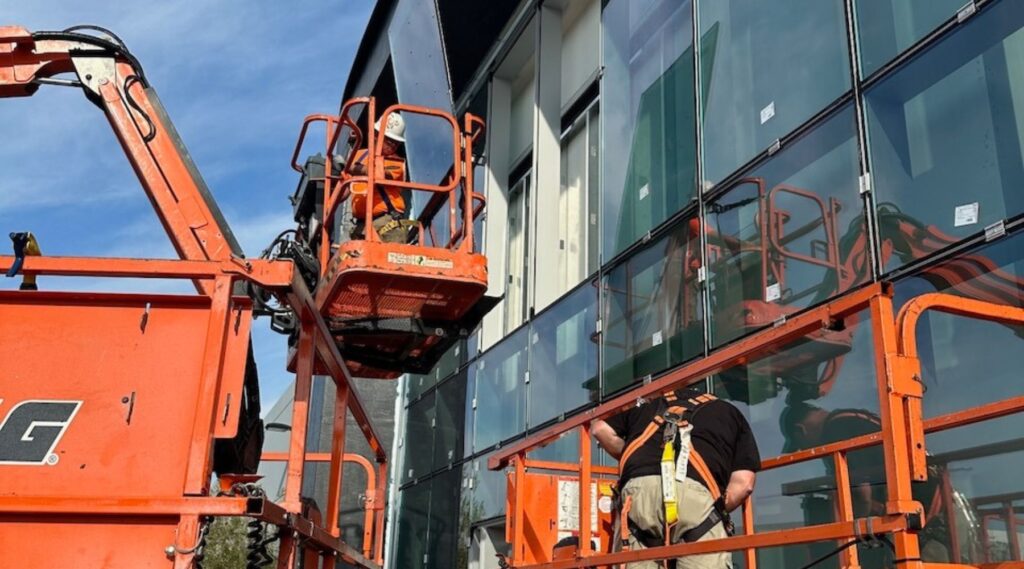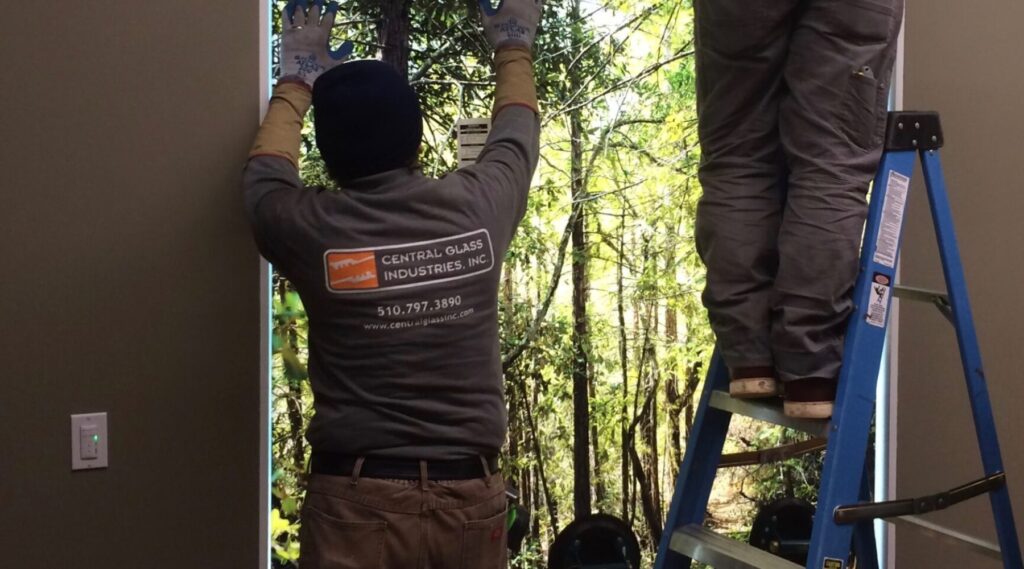How to Choose a Reliable Glazing Subcontractor for Medium to Large-Scale Projects
If you’re ready to hire a glazing subcontractor for large projects, it calls for careful consideration and planning. Glass may look simple once it’s installed, but behind every seamless curtain wall or polished storefront is a team that knows how to manage technical details, shifting timelines, and safety requirements, all without slowing down the job site. In commercial construction, delays are costly.
So, how do general contractors and developers make sure they’re hiring a glazing subcontractor who can actually deliver?
It starts with knowing what to look for, asking the right questions, and digging deeper than the bid price.
Key Takeaways:
Don’t let the wrong subcontractor derail your timeline. Hire a glazing subcontrator
When you're ready to hire a glazing subcontractor, it goes beyond experience
Years in the industry do matter, as glass installation isn’t a plug-and-play trade. But what you really want to see is relevant experience.
Has the subcontractor worked on projects of similar size and scope? Installing floor-to-ceiling glazing systems in a high-rise office building is a different beast than doing interior partitions at a retail plaza. Ask to see a portfolio, and don’t settle for vague answers. A reputable subcontractor should be able to show:
- Photos and specs from past large-scale projects
- Testimonials or references from general contractors
- A list of manufacturers they’re certified to work with
Many developers use a prequalification form or a standard subcontractor questionnaire, but even if you don’t, it’s smart to look for evidence of bonding capacity, insurance coverage, and licensing (especially if your state requires a glazing license specifically).
Vetting Isn’t Optional

Construction is full of moving parts, and a weak link in one trade can ripple out across the entire schedule. When you are ready to hire a glazing subcontractor, a good canidate should be able to slot into a complex job with minimal supervision. That only happens when you vet properly. Some areas to dig into:
- Project management process
Do they use digital tools like Procore or PlanGrid? Do they assign a dedicated PM or site lead for larger builds? - Labor force and self-performance
Do they use in-house crews or outsource labor? If it’s the latter, how do they ensure quality and safety compliance? - Safety record
Glazing is high-risk work. Check their EMR (Experience Modification Rate) and OSHA 300 logs. The national average EMR is around 1.0; lower is better. - Communication and collaboration
On big projects, RFIs, submittals, and field coordination can make or break delivery timelines. Ask how they handle change orders, site conflicts, and real-time problem solving.
One red flag? Subcontractors who can’t clearly describe how they integrate with other trades on-site. That’s a signal they may not be used to working on larger or more structured projects.
Cost Factors Go Beyond the Number
Everyone’s working on tight margins, but going with the lowest bid is risky if the subcontractor hasn’t factored in the complexity of the job. Incomplete scopes and change orders down the line can quickly eat into your savings.
When you’re ready to hire a glazing subcontractor and you’re evaluating costs, look for:
- Detailed scope breakdowns (materials, labor, equipment)
- Clear exclusions or allowances
- Manufacturer lead times and logistics planning
- Warranty info and maintenance guidelines
It’s also worth asking if the bid includes shop drawings and engineering. Not all glazing subs handle that in-house, and outsourcing it can create lag or coordination issues.
What Sets Central Glass Industries Apart

At Central Glass Industries, we’ve built our reputation on doing exactly what we say we’ll do. We don’t take shortcuts on safety, and we don’t leave project managers chasing us down for updates.
We specialize in large-scale commercial projects, from multi-building campuses to flagship retail rollouts. Our team knows how to deliver precise results that align with both design intent and construction schedules.
We’re known for our professionalism on-site and our ability to coordinate smoothly with general contractors, architects, and other trades. Every project benefits from a dedicated team, clear communication, and a deep understanding of industry standards and safety protocols.
Final Tips for when you're ready to Hire a Glazing Subcontractor
Glazing might not seem like a big decision until it slows down your schedule or creates coordination headaches on-site. A dependable subcontractor helps you avoid all of that by staying aligned with your vision, your timeline, and your standards from the very beginning.
Before you commit, it’s worth taking a quick look at their track record, confirming they’re properly licensed and insured, and making sure you’re clear on who’s managing the job and how the scope is structured. A quick conversation can tell you a lot about how they communicate and how they’ll show up on your site.
Glass can either support your project or quietly complicate it. At Central Glass Industries, we help keep things moving, aligned, and built to last. Let’s talk about how we can support your next commercial build.
Serving the Bay Area, including Newark, Palo Alto, Fremont, Union City, Milpitas, Hayward, and surrounding cities within a 30-mile radius of our home office for over 40 years, we’re your trusted glass partner for everything from windows and doors to custom storefronts, railings, and more. No project is too big or too small—whether you’re upgrading your windows for energy efficiency or enhancing your interiors with custom glass, our in-house team of experts will bring your vision to life.
We are licensed, bonded, & insured | California Contractor’s License #908623
FAQs
What qualifications should I look for when hiring a glazing subcontractor for a commercial project?
Look for proper licensing, insurance, safety certifications like OSHA, and experience with projects similar in size and scope to yours.
How can I evaluate a glazing subcontractor’s previous work and reliability?
Ask to see a portfolio of past projects, check references from general contractors, and look into how consistently they meet deadlines and coordinate on active job sites.
What are the key factors that affect the cost of hiring a glazing subcontractor for large-scale projects?
Cost is influenced by materials, scope complexity, custom fabrication needs, labor, and project timeline—plus whether engineering and shop drawings are included.
